Changing the World Through Education
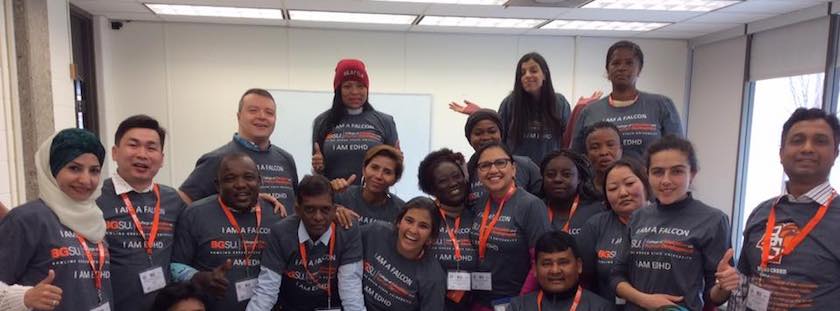
By Anne-Margaret Swary
Twenty teachers from around the world returned to their home countries last week equipped with new knowledge and skills they hope will help them become more effective educators, integrate technology into their classrooms and address issues of gender equity in their schools.
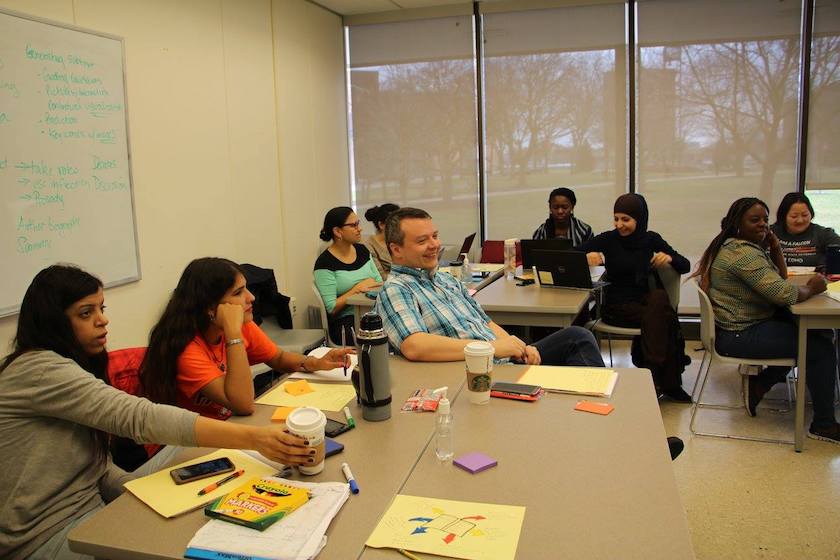 They spent the last six weeks learning from faculty and staff in BGSU’s College of Education and Human Development as part of the Teaching Excellence and Achievement (TEA) Program, a professional development program funded by the U.S. Department of State. The program is administered through the International Research & Exchanges Board (IREX) and hosted at BGSU by the International Democratic Education Institute (IDEI) in the College’s School of Teaching and Learning.
They spent the last six weeks learning from faculty and staff in BGSU’s College of Education and Human Development as part of the Teaching Excellence and Achievement (TEA) Program, a professional development program funded by the U.S. Department of State. The program is administered through the International Research & Exchanges Board (IREX) and hosted at BGSU by the International Democratic Education Institute (IDEI) in the College’s School of Teaching and Learning.
BGSU is one of only four colleges in the country to host this program each spring, and it’s the only one with a gender equity-themed cohort.
“The focus of our program is integrating curriculum development, design, assessment and technology, and service learning into English as a Foreign Language curriculum and world language curriculum, but they have to look at it through the lens of gender equity,” said Dr. Sharon Subreenduth, a professor in the School of Teaching and Learning who serves as the university’s TEA program director.
“Part of what we have the TEA fellows do here is come up with action plans for how they would address gender equity in their classrooms – ways to make realistic and tangible changes,” Subreenduth said. “And long term, what will they do to help the community understand this? We realize just how much family and society uphold these inequities, and we cannot address this only in isolation in our classrooms.”
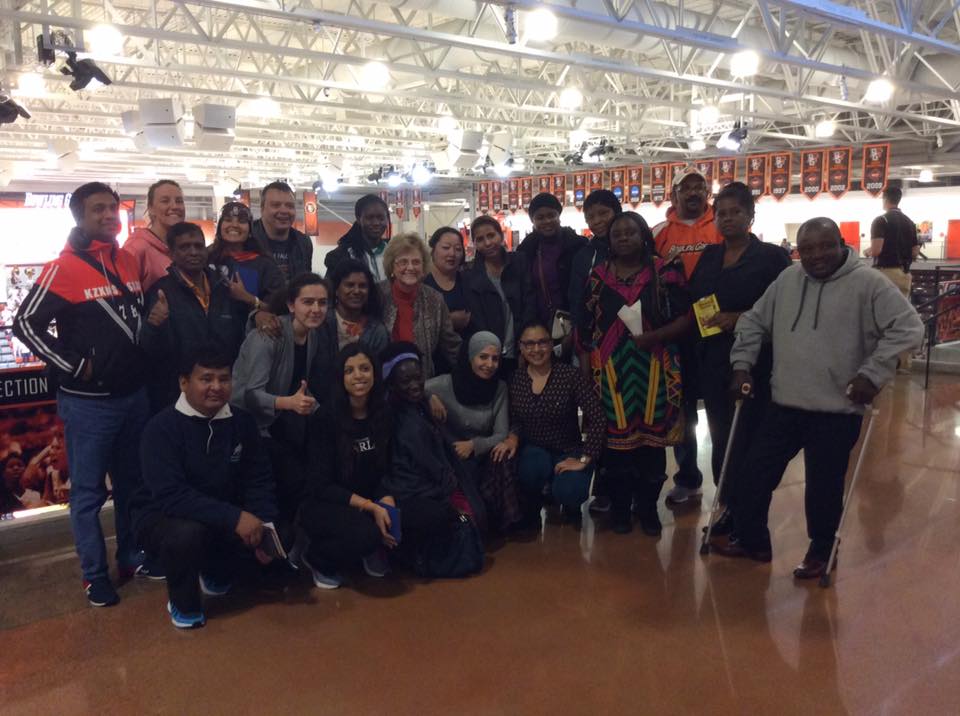 The TEA teachers hailed from every corner of the globe – from Bangladesh to Burkino Faso and Vietnam to Venezuela – and they all shared examples of challenges in their educational environments. Some were more general hardships, such as having an average class sizes of 89 students or no resources to purchase even the most basic technology, while others center specifically on issues of gender equity.
The TEA teachers hailed from every corner of the globe – from Bangladesh to Burkino Faso and Vietnam to Venezuela – and they all shared examples of challenges in their educational environments. Some were more general hardships, such as having an average class sizes of 89 students or no resources to purchase even the most basic technology, while others center specifically on issues of gender equity.
For example, at Ban Zunon Dieda’s school in Cote D’Ivore, only male students tend to raise their hand to participate in class, she said, and they often ridicule female students who do have the courage to call out answers. Few women leaders are mentioned or praised in any of the textbooks used throughout the country. The school itself leaves little room for female role models with women making up less than a quarter of the teaching staff and occupying no positions in departments such as mathematics.
Similarly in Zimbabwe, where Rufaro Patricia Madziwo teaches, she said the textbooks overflow with gender stereotypes that perpetuate the idea that “girls are not good enough to do anything” and dissuades them from certain subjects, particularly STEM fields.
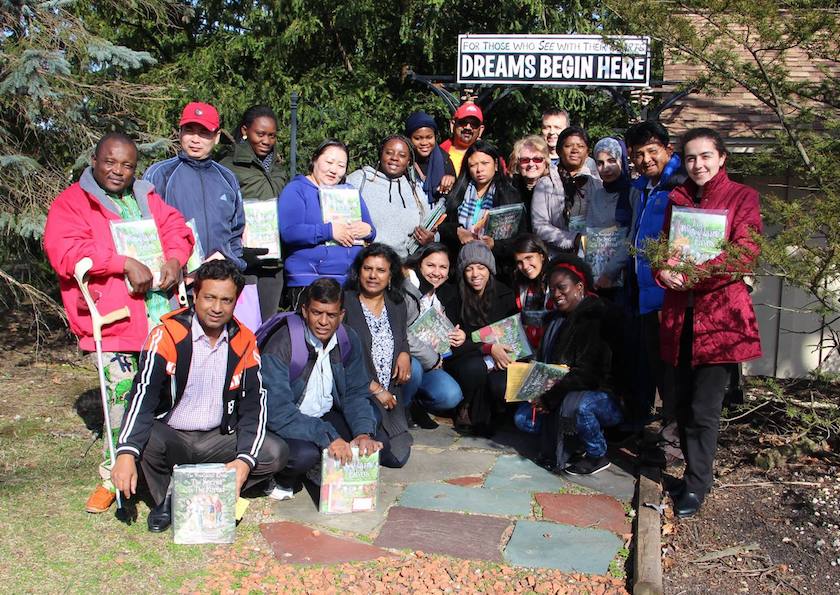 She hopes to use a technique she learned at BGSU called “teach to transgress” to challenge her students to think critically about the way characters are presented in their readings. As part of her lesson plans, she plans to have students rewrite assigned sections in a way that is not gender stereotypical and then create skits to illustrate these new passages.
She hopes to use a technique she learned at BGSU called “teach to transgress” to challenge her students to think critically about the way characters are presented in their readings. As part of her lesson plans, she plans to have students rewrite assigned sections in a way that is not gender stereotypical and then create skits to illustrate these new passages.
“When you are in your home country, you think maybe you are the only one facing these challenges,” Madziwo said. “But then you come here and realize you are not alone. We all face some of these issues, and we are able to learn from each other’s experiences.”
Opokua Ampadu Sackey, an English language teacher from Ghana, echoed those similar sentiments.
“Coming here has been a wonderful experience,” she said. “I have come to learn not only from America, but from 20 different countries.”
That opportunity to learn from others and have them learn from her as well has been especially rewarding.
“When I applied for this program, I wanted to find a way to share my culture and myself as an individual with people because sometimes what we read in books and watch on TV is only part of the story,” she said.
Sackey said she cannot wait to implement some of the activities and games she learned from the BGSU faculty. She also is determined to find the resources to get a smartboard for her school, where no such technology exists.
For Vasily Nosov, a secondary school teacher in Estonia, the cross-cultural experience that the TEA program offered was priceless. He particularly enjoyed the opportunities to interact with American students in local schools during visits to Bowling Green High School, Toledo School for the Arts, Otsego and Perrysburg junior high schools and Marion City Schools, among others.
After visiting one elementary school, one TEA fellow wrote in her blog that if she had a genie in a magic lamp, she’d wish to transport the school’s library to her own school back home. Many of the fellows were fascinated with some of the techniques that teachers used to engage students, including playing music in the classroom.
At Swanton High School, the fellows were invited to make displays about their home countries as part of the school’s International Night, where some dressed in native clothes to showcase their authentic culture and also displayed images and artifcants that they could use to share about their home countries.
During their six weeks, they also were able to make field trips to Chicago, Detroit and New York and many locations through Northwest Ohio to learn more about American history and culture. Overall, it was a trip of many firsts – first time experiencing snow, first ice hockey game, first time seeing an overhead projector, first time making a YouTube video, even an attempt at the mannequin challenge – which brought joy and humor to all in the group.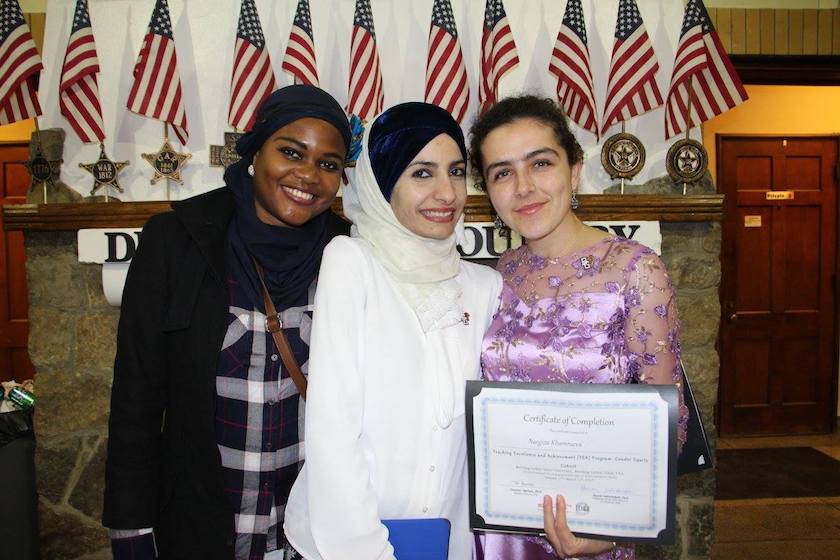
Thousands of English as a Foreign Language teachers around the world apply for the TEA Program each year, and less than 100 fellows are selected for the four U.S. sites. Orquidia Florez Muñoz from Venezuela wanted to be part of the program so much that she applied six years in a row before finally being selected.
She said it was absolutely worth the wait, and she can’t wait to return to Venezuela and serve as an example to her school and her community: “I feel so proud about what I’ve gained through this experience.”
Updated: 02/24/2020 10:05AM
